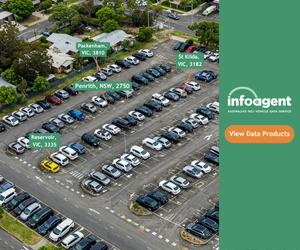Of the 56.3 million standard passenger tyres that are discarded annually in Australia, only 10 per cent are currently recycled.
The remaining are sent to landfill, stockpiled, illegally dumped or exported overseas – which poses a significant environment and safety concern.
No greater example of this was the large tyre fire in Broadmeadows, Victoria in January 2016 that saw 150,000 tyres set alight due to an electrical fault. The fire sent a plume of black smoke into the air so large that it could be seen from the Mornington Peninsula almost 100km away.

The 2016 Broadmeadows tyre fire saw 150,000 tyres burnt due to an electrical fault. It took over two days to extinguish.
So what is being done to form a long-term solution to this nationwide problem?
As part of the Sustainable valorisation of waste tyre and recycled glass in civil engineering workshop at the University of Melbourne, delegates considered the logistics of a more environmentally sustainable future. It was noted that a collaborative and tailored solution by all sectors of the industry is required to make a significant change.
“Australia is unique, therefore, we need a system that is appropriate to the circumstances we face here,” Tyre Stewardship Australia (TSA) Market Development Manager Liam O’Keefe said
“There needs to be an alignment of our own organisational structure to the characteristics of the context in which we operate.”
Through that alignment, TSA is working to establish alternative recycling methods for end-of-life tyres. Already tyres have been used in road surfacing, soft fall playground surfacing, brake pads, explosives and in civil engineering among other uses.
Central to this process is the Tyre Product Stewardship Scheme, which delivers the benefits of transforming a waste product into useful products, creating new industries and employment opportunities while also reducing the environmental harm caused by illegal dumping.
“The Tyre Product Stewardship Scheme is designed to increase resource recovery and recycling and to minimise the environmental, health and safety impacts of all end-of-life tyres generated in Australia; and develop Australia’s tyre recycling industry and markets for tyre derived products,” TSA said.
While at this stage the Scheme is an opt-in measure, TSA is attempting to work with state and federal government sustainability sectors to encourage further buy-in. Personally becoming accredited under the Tyre Product Stewardship Scheme carries no cost to the organisation seeking accreditation, but it does carry a requirement for regular reporting.
Fleet managers are encouraged to partake in recycling schemes with accredited manufacturers and importers that have signed up for the scheme. Current accredited retailers and supplies include Beaurepaires, Bridgestone, Goodyear Dunlop and Michelin among countless others.
For more information on the Tyre Stewardship story, click here











